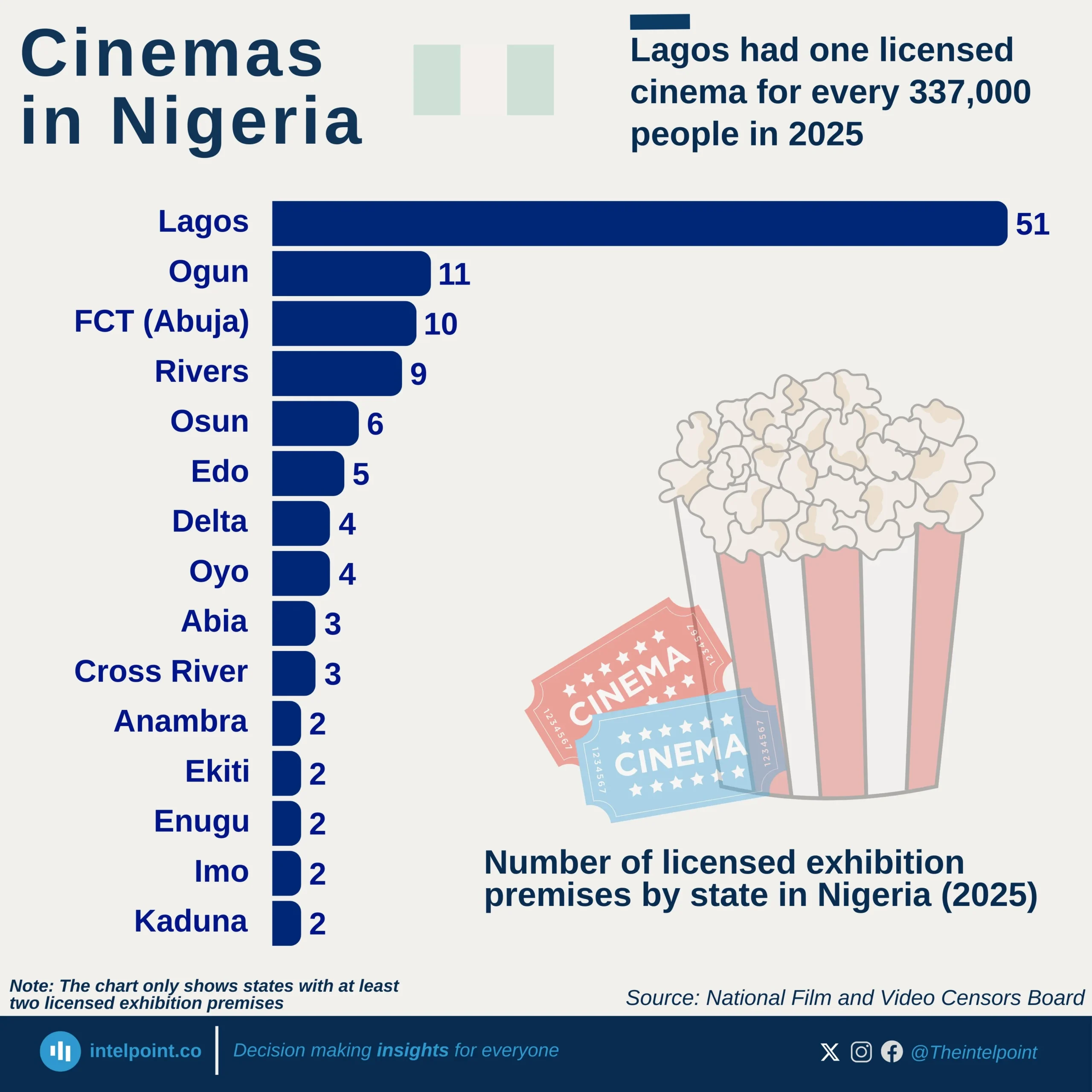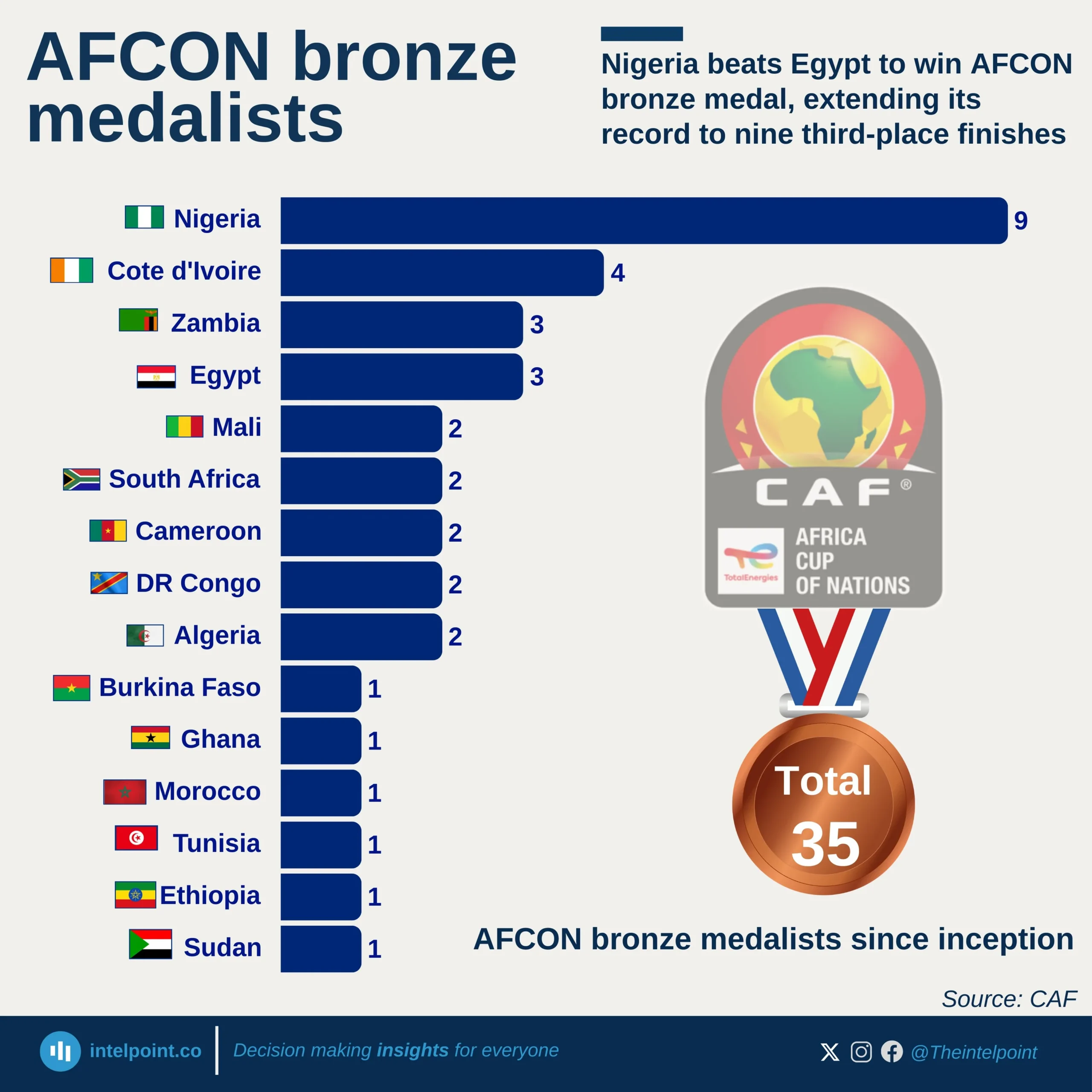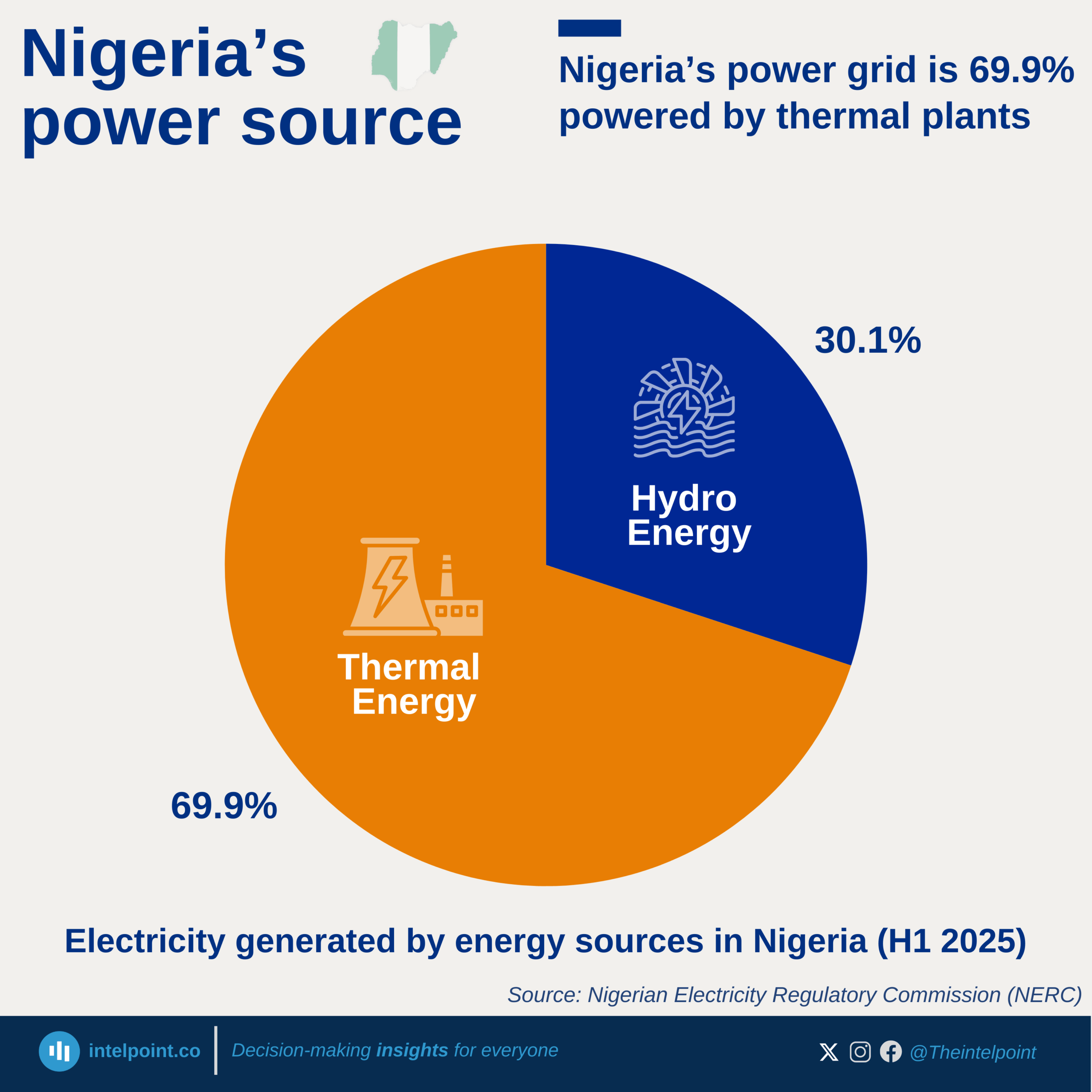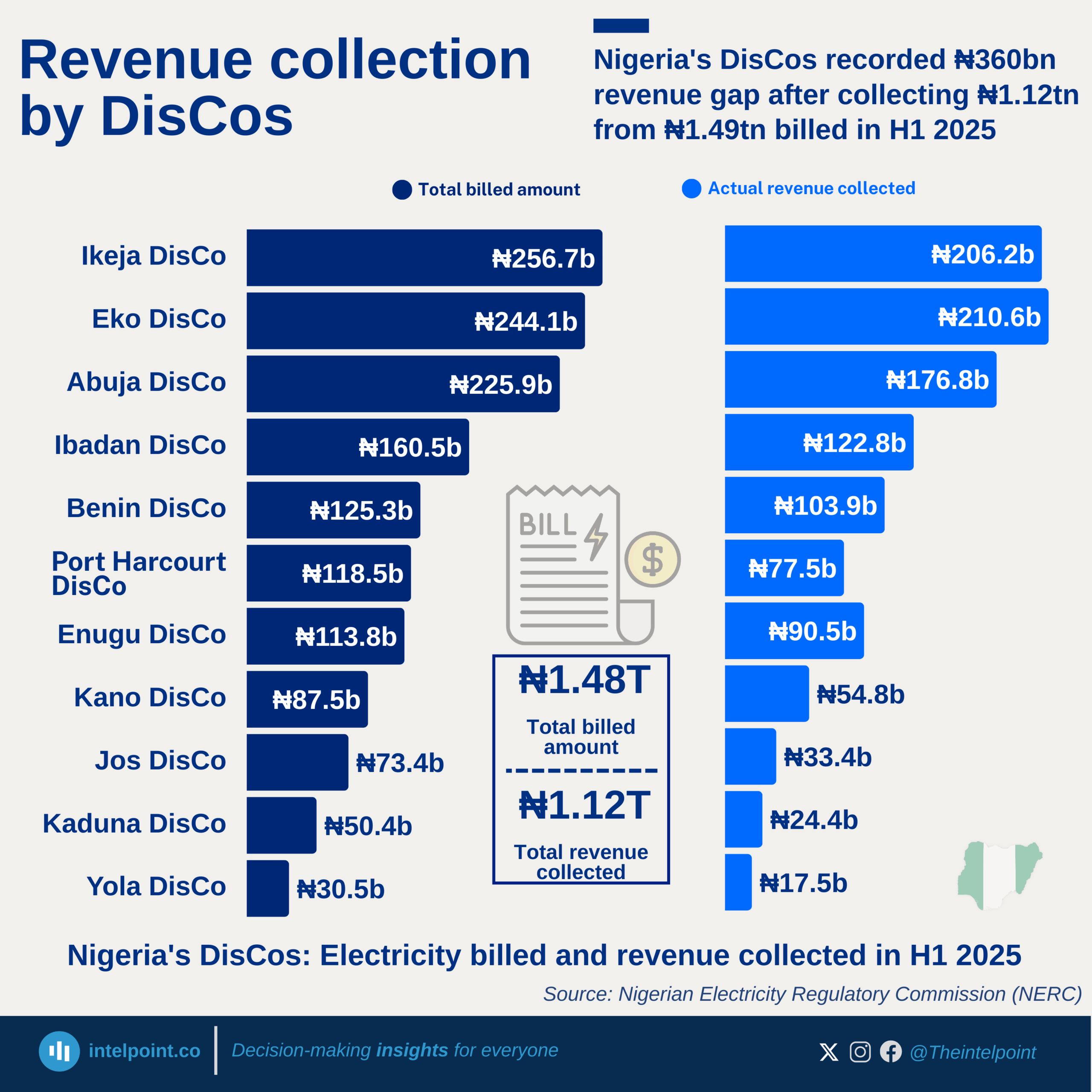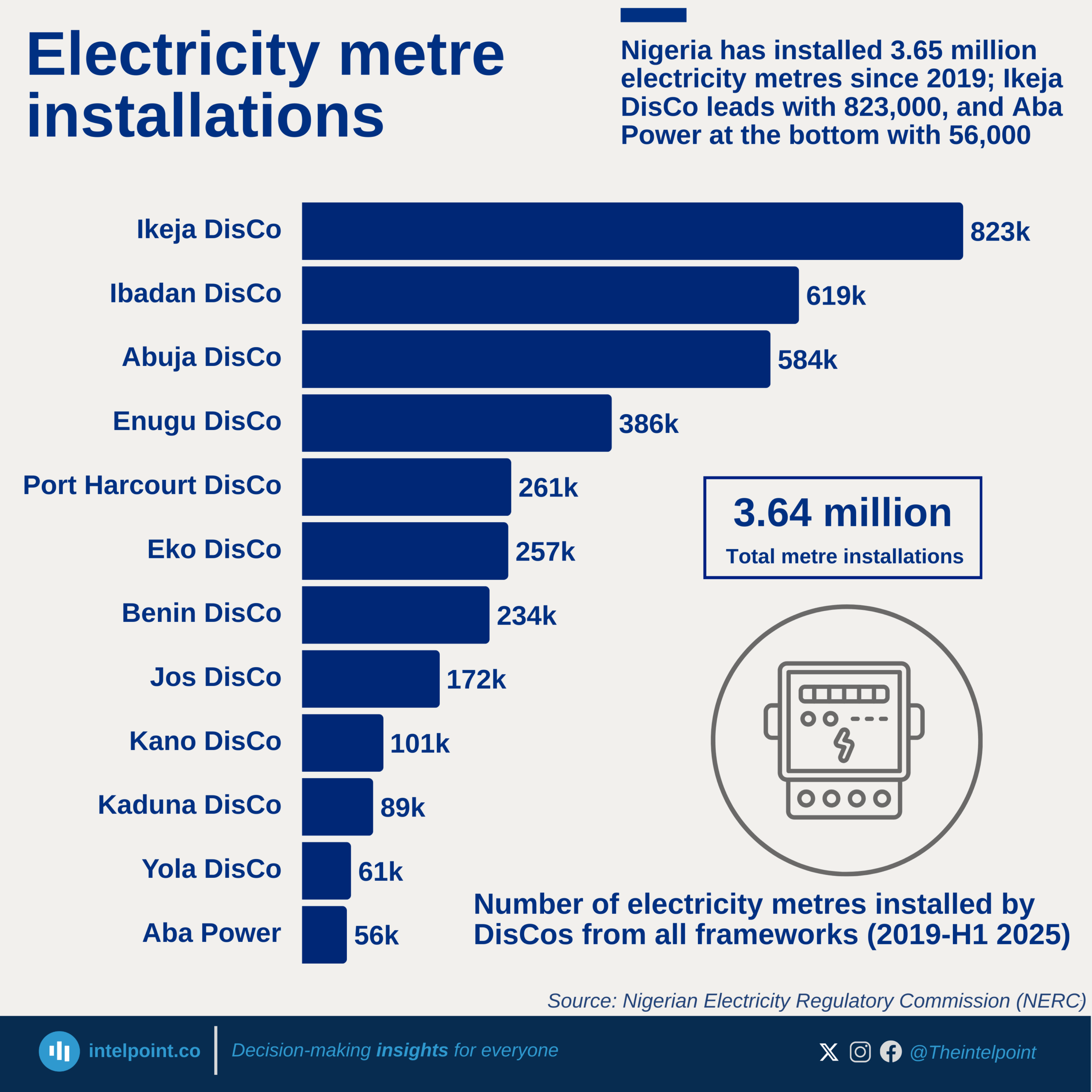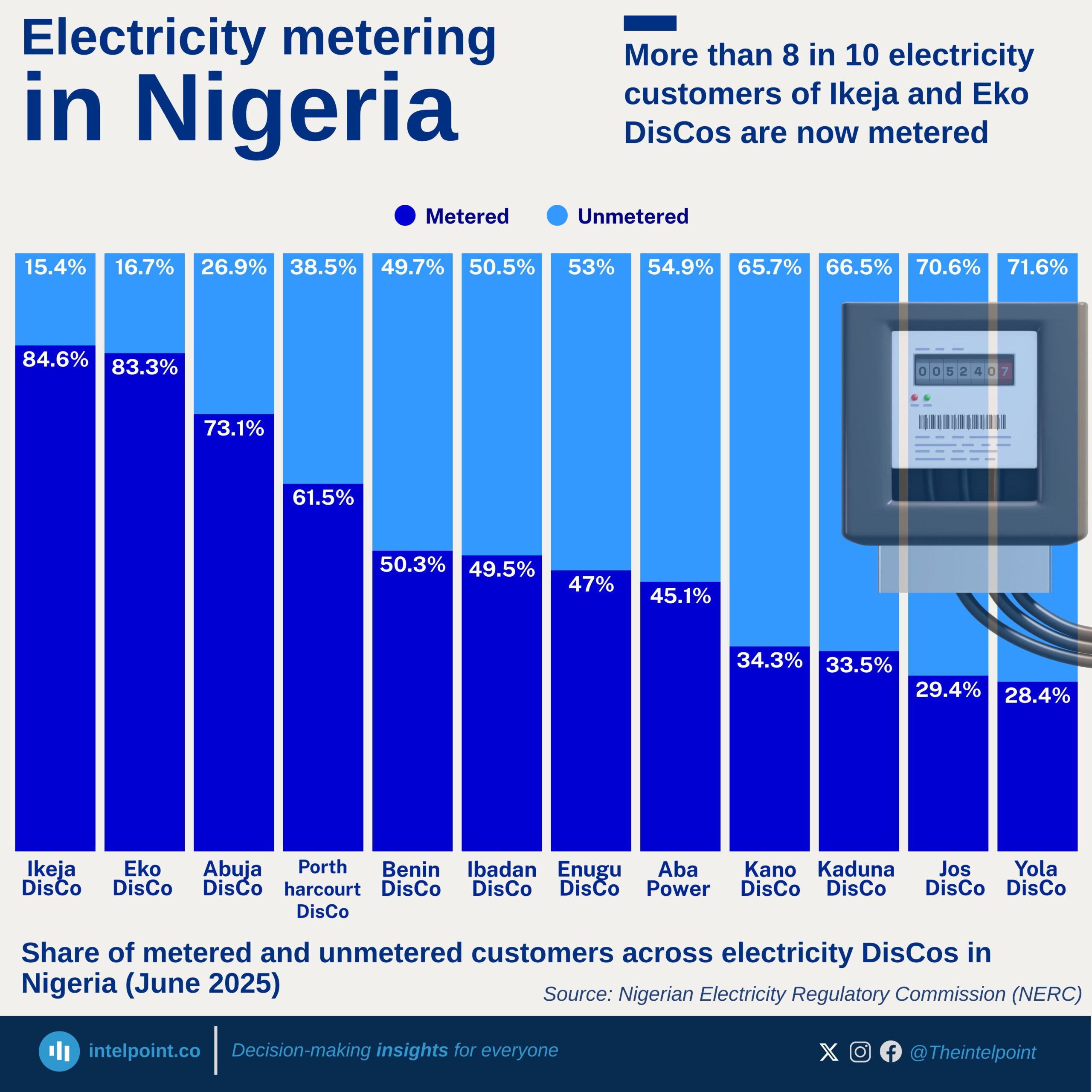Nigeria’s import and export activities by port for the first quarter of 2025 reveals a sharp concentration of trade around a single location.
Apapa Port emerged as the country’s dominant trade hub, handling more than ₦25.79 trillion worth of goods, which amounts to over 71% of Nigeria’s total international trade for the period. Its share of exports was more pronounced, at ₦17.74 trillion, accounting for 86.12% of Nigeria's total exports of goods.
On the import side, Apapa also led with ₦8.05 trillion, representing 52.2% of total imported goods. Tin Can Island Port, while the second busiest, processed far less, with ₦3.44 trillion in combined trade, or just 9.5% of the national total.
Lekki Deep Sea Port handled about ₦2 trillion in trade, mostly from imports, while Port Harcourt (Onne) processed a similar amount. Meanwhile, Murtala Muhammed International Airport, the only air cargo port among the top five, contributed just ₦647 billion (1.8%).
This chart highlights Nigeria’s significant reliance on Apapa Port, which, although efficient, poses a logistical risk if its capacity is overstretched. The significant imbalance also suggests the need to boost export capacity and diversify usage across other ports to enhance resilience and economic efficiency.
